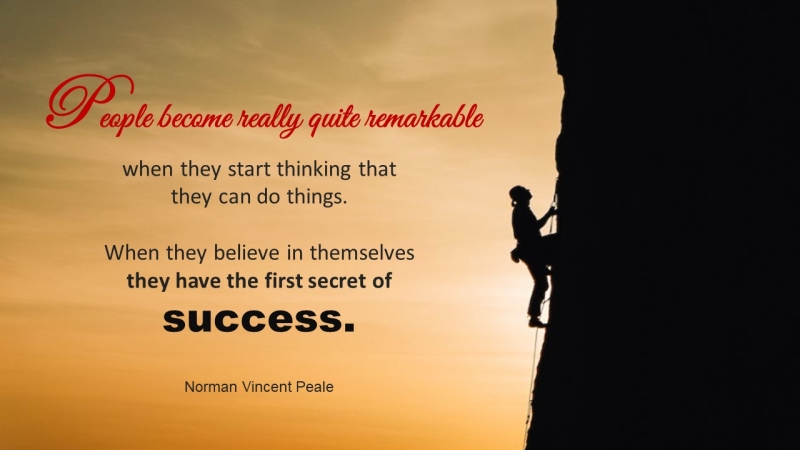SUCCESS IS SOMETHING THAT MOST PEOPLE STRIVE FOR IN THEIR PERSONAL AND PROFESSIONAL LIVES. We all have goals and aspirations, but achieving them can be daunting. It requires hard work, perseverance, and a specific skill or talent level. However, one key ingredient is often overlooked, and that is self-belief.
Self-belief is the cornerstone of success. The bedrock on which we construct our hopes and the strength to persevere through adversity. In this article, we’ll talk about how vital self-belief is to success, what the science says about it, what the benefits of self-belief are, and how to build it.
What is Self-Belief?
Self-belief is belief in one’s abilities, qualities, and judgment. It is the confidence and trust we have in ourselves to achieve our goals and overcome obstacles. Self-belief is not just a positive attitude or a feeling; it is a deep-rooted conviction that we can accomplish great things. The frame of mind lets us experiment, make mistakes, and grow.
Self-belief is essential in achieving success because it shapes our thoughts, emotions, and behaviors. It separates successful people from those who give up when faced with challenges. It equips us to take risks, recover quickly from failure, and press on when the going gets tough.
The Science of Self-Belief
A growing body of scientific research demonstrates the impact of self-belief on success. One of the key findings is that our beliefs about ourselves shape our reality. In other words, what we believe about ourselves becomes our truth. If we think we are capable, intelligent, and competent, we will behave in ways that reflect those beliefs. We will take on challenges, persevere in the face of obstacles, and seek opportunities to learn and grow. On the other hand, if we believe we are not good enough, we will hold ourselves back, avoid challenges, and give up easily.
The brain also plays a significant role in shaping our beliefs about ourselves. When we engage in activities that align with our beliefs about ourselves, the brain strengthens the neural connections that support those beliefs. The brain is very flexible and can change how it works based on what we do and think.
This process is known as neuroplasticity. For example, we believe that we are good at math, and we practice math regularly. In that case, our brain will strengthen the neural connections that support that belief, making us even better at math. Conversely, we believe we are not good at math and avoid math. In that case, our brain will weaken the neural connections that support that belief, making it even harder for us to learn math.
The Benefits of Self-Belief
Self-belief has a lot of benefits that help you do well in many areas of life. Belief in oneself has many significant advantages.
- Increased Confidence: When we believe in ourselves, we feel more confident in our abilities to achieve our goals. We are more willing to take risks, make mistakes, and learn from them. This confidence helps us stand out personally and professionally, making us more attractive to others.
- Resilience: Self-belief gives us the strength to bounce back from setbacks and failures. It helps us to keep going when things get tough and to persevere in the face of challenges.
- Motivation: When we have self-belief, we are more motivated to achieve our goals. We are motivated by the will to achieve our goals and realize our potential.
- Positive Mindset: Self-belief helps us to maintain a positive mindset, which is essential for success. A positive attitude enables us to see opportunities where others see obstacles, to focus on solutions instead of problems, and to maintain a sense of optimism even in difficult times.
- Better Performance: Self-belief can lead to better performance in various areas of life. Having faith in one’s abilities positively affects performance in all spheres of life. This is because our beliefs about ourselves shape our actions and behaviors, ultimately determining our outcomes.
Examples of Successful People Who Credit Their Self-Belief as a Key Factor in Their Success
Numerous examples of successful people who credit their self-belief as a critical factor in their success. Here are just a few:
- Oprah Winfrey: As a media mogul and generous philanthropist, Oprah Winfrey is often listed among the world’s most influential people. However, she credits her success to her unwavering belief in herself and her ability to achieve her dreams. She grew up in poverty and experienced significant trauma as a child.
- Michael Jordan: Michael Jordan is regarded as one of the greatest basketball players ever. He faced numerous setbacks and failures throughout his career but never lost his self-belief. He once said, “I’ve missed over 9,000 shots in my career. I’ve lost almost 300 games. 26 times, I’ve been trusted to take the game-winning shot and missed. I’ve failed over and over and over again in my life. And that is why I succeed.”
- J.K. Rowling: Over 500 million copies of J.K. Rowling’s Harry Potter books have been sold worldwide. She faced numerous rejections before her first book was published but never gave up on her dream. She once said, “I was set free because my greatest fear had been realized, and I still had a daughter who I adored, and I had an old typewriter and a big idea. And so rock bottom became the solid foundation on which I rebuilt my life.”
Developing Self-Belief
If you struggle with self-belief, there are several strategies you can use to develop and strengthen it:
- Identify Your Strengths: Make a list of your strengths and accomplishments. This will help you to build confidence in your abilities. You should think about your strengths and past achievements.
- Challenge Your Negative Self-Talk: Pay attention to your inner dialogue and challenge negative self-talk. Replace negative thoughts with positive affirmations.
- Take Action: Take small steps towards your goals, even if they initially seem daunting. Every small success will build your confidence and self-belief.
- Surround Yourself with Positive Influences: Create an environment full of people who will encourage and motivate you to succeed. Avoid negative influences that undermine your self-belief.
- Embrace Failure: Realize that making mistakes is integral to developing your skills. Never let a setback define you; instead, view it as a springboard to success.
Conclusion
Self-belief is a critical component of success. It shapes our thoughts, emotions, and behaviors and significantly impacts our ability to achieve our goals. Self-belief has numerous benefits, including increased confidence, resilience, motivation, a positive mindset, and better performance. By developing and strengthening our self-belief, we can overcome obstacles, pursue our dreams, and succeed in all areas of our lives. Remember, success begins with the belief that you can achieve it.
HOW IT WORKS
Specific vibrations and frequencies in the program alter your wealth DNA, allowing you to pursue financial success. Money-making ideas take about seven minutes to get the ball rolling in your brain’s DNA. The program does not involve any pointless drills but uses vibrational frequencies to stimulate your brain, activating the wealth DNA to begin accumulating wealth. Yoga, meditation, and deep breathing exercises may help you unwind, but they do little to advance your career prospects.




